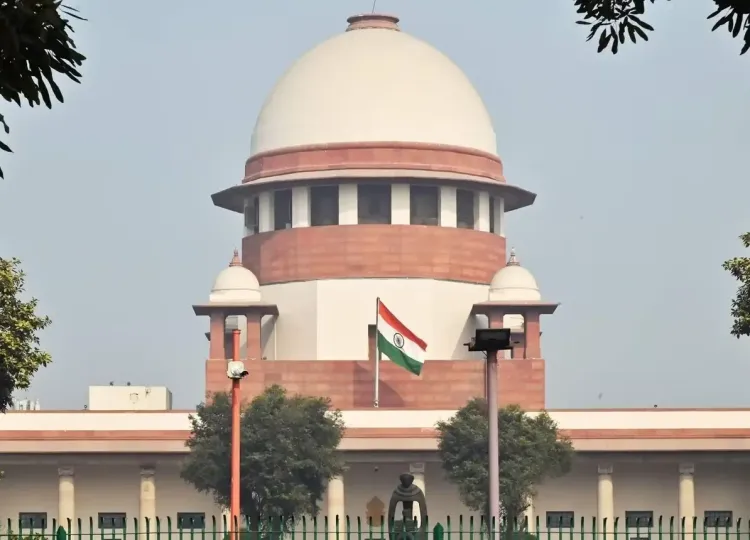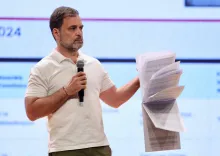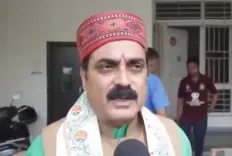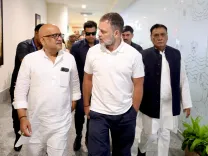Supreme Court's 3-Judge Special Bench to Hear Challenges to Places of Worship Act Today

New Delhi, Dec 12 (NationPress) A three-judge Special Bench of the Supreme Court is scheduled to hear on Thursday a series of petitions contesting the legality of specific provisions of the Places of Worship (Special Provisions) Act, 1991.
The Act prohibits the initiation of lawsuits aimed at reclaiming places of worship or altering their character from what was established on August 15, 1947.
According to the causelist posted on the apex court's website, the Special Bench, led by CJI Sanjiv Khanna and including Justices Sanjay Kumar and K.V. Viswanathan, will address the issue on December 12.
In March 2021, a bench overseen by then CJI S.A. Bobde requested a response from the Centre regarding a plea submitted by advocate Ashwini Upadhyay, who challenged the validity of certain provisions within the Act.
The plea argued, "The 1991 Act was enacted under the guise of 'Public order', which is a subject of the State (Schedule-7, List-II, Entry-1) and 'places of pilgrimages within India' are also State subjects (Schedule-7, List-II, Entry-7). Therefore, the Centre lacks the authority to legislate this law. Furthermore, Article 13(2) prohibits the State from enacting laws that infringe upon fundamental rights; however, the 1991 Act infringes upon the rights of Hindus, Jains, Buddhists, and Sikhs to reclaim their 'places of worship and pilgrimages', which were destroyed by barbaric invaders."
It further stated, "The Act exempts the birthplace of Lord Rama while including the birthplace of Lord Krishna, even though both are incarnations of Lord Vishnu, who is revered globally; this disparity is arbitrary."
Meanwhile, several applications for intervention/impleadment have been submitted to the apex court, seeking the dismissal of the petitions against the Places of Worship Act.
In its application, the Managing Committee of Varanasi's Gyanvapi Mosque warned that declaring the 1991 Act unconstitutional would have serious repercussions, jeopardizing the rule of law and communal harmony.
It stated that a petition under Article 32 challenging a legislative act must demonstrate the unconstitutionality of its provisions based on constitutional principles, and cannot rely on emotional arguments seeking vengeance against perceived actions of past rulers.
Currently, there are approximately 20 suits pending in various Varanasi courts aimed at nullifying the protections offered by the 1991 Act in order to alter the character of the Gyanvapi Mosque and restrict Muslim access to the mosque.
Similarly, the Committee of Management of Mathura’s Shahi Masjid Eidgah asserted that the law was enacted by Parliament for the nation's progress and has proven effective for over 33 years.
The mosque committee pointed out that the resolution of the petitions against the Places of Worship Act could significantly impact the decisions regarding their special leave petitions currently before the apex court against the dismissal of their application filed under Order VII Rule 11 of the CPC (Code of Civil Procedure) and the ongoing suits against the mosque committee.
The Management Committee of Shahi Masjid Eidgah is involved in 17 different suits being heard by the Allahabad High Court, where plaintiffs have claimed ownership over the entire land on which the Shahi Masjid Eidgah is situated, and have requested the removal of the mosque structure from that land, alleging it was built over Krishna Janm Sthan.





